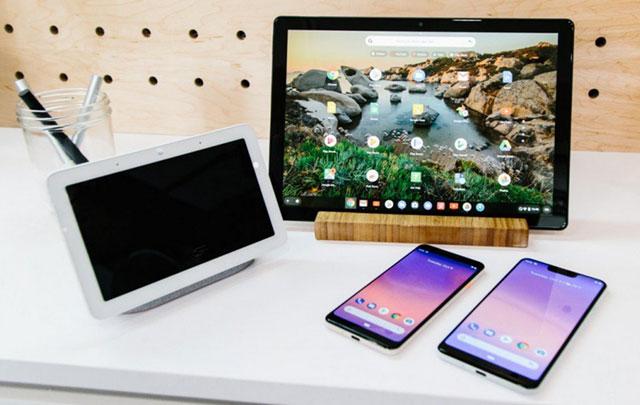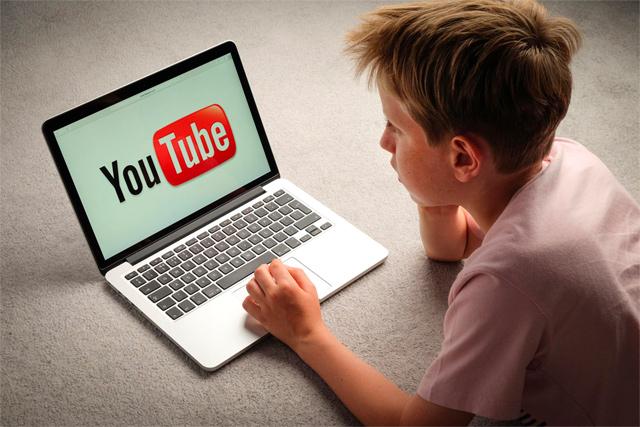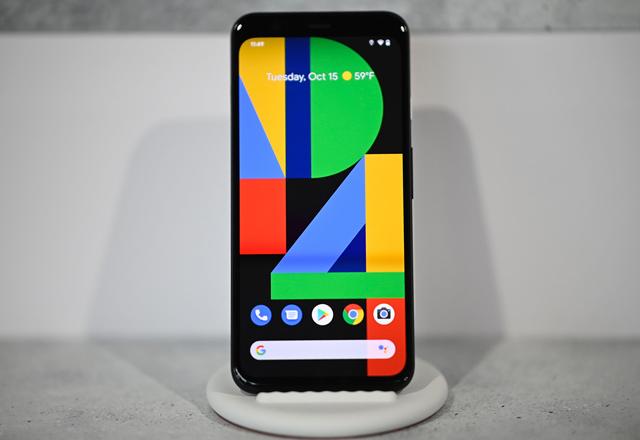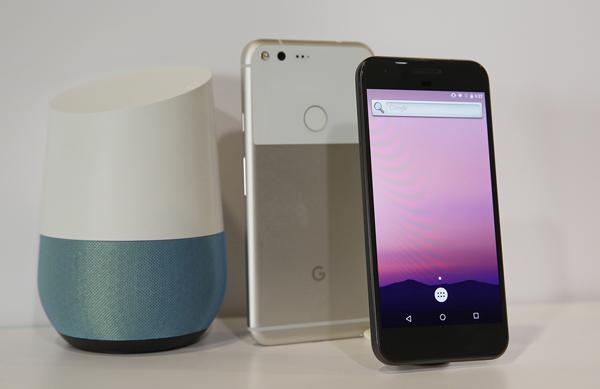You are here
Google unveils new Pixel phone, adds tablet in Apple challenge
By Reuters - Oct 10,2018 - Last updated at Oct 10,2018

Google demos the new Google Home Hub, left, Google Pixel Slate, centre, and new Pixel phones during their official event in New York on Tuesday (Reuters photo)
SAN FRANCISCO — Alphabet Inc.’s Google on Tuesday unveiled the third edition of its Pixel smartphone, a Google Home smart speaker with a display and its first tablet computer as it makes a come-from-behind push into hardware.
The company’s Android software has gone from being an also-ran to the brains of most of the world’s smartphones and Google topped Amazon.com Inc. in smart speaker sales in recent quarters.
Pixel phones, though, have been a tougher sell, launching with glitches and garnering less than 1 per cent of the global market by shipments in Google’s first two years of trying, according to research firm Strategy Analytics.
The Pixel 3, priced at $799, and a larger Pixel 3 XL, priced at $899, mark Google’s latest entries for a phone line-up it hopes will someday be as popular as Apple Inc.’s iPhone.
The Pixel Slate tablet runs Google’s beefier Chrome OS laptop operating system rather than Android. It is priced at $599, aimed at competing with Apple’s iPad Pro.
Shares of Alphabet barely moved on the announcements. Financial analysts said it is difficult to evaluate Google’s hardware business as it is overshadowed by profits from search ads.
Google branched into hardware three years ago so that, like Apple, it could have full control of the performance of its applications and the revenue they generate. Other phone makers sometimes crowd out Google’s apps with their own or take a share of ad revenue, hurting Alphabet’s profits.
Expanding geographic distribution should provide a small boost to the Pixel line-up. The Pixel 3 will launch in 10 countries, up from six for the Pixel 2 a year ago. New additions include France, Ireland, Japan and Taiwan.
The Slate is available in the United States, the UK and Canada.
A new artificial intelligence tool sure to generate buzz among consumers also could be helpful. The software, launching on US Pixels only, answers calls, requests information about the nature of the calls and shares it as text with the recipient.
“We’ve built the first phone that can answer the phone,” Rick Osterloh, Google’s senior vice president for hardware, told media on Tuesday.
Ryan Reith, who leads device research at tech consulting firm IDC, said Google did not change enough in the Pixel 3 for it to stand apart from more well-known competitors.
“Some of the stuff they are doing with software and artificial intelligence is certainly leading edge,” he said. “But as a lot of the technology advancements become more naked to the eye, it becomes that much tougher to sell.”
Google shipped 2.53 million Pixel 2 and 2 XL devices through the nine months ended June 30, Strategy Analytics said. The first Pixel devices hit 2.4 million shipments in the nine months ended on June 30, 2017, the firm said.
Limited adoption has reflected Google’s hesitancy to go as wide and big in distributing and marketing the Pixel as Apple, which launched its last two iPhone line-ups in about 50 countries.
Going from a small experiment to a polished product that works in various languages and is backed by large sales, support and technical teams has been part of Google’s challenge.
Last year’s Pixel 2 arrived with bugs that prompted user complaints about unwanted noises during calls, a crashing camera app and an unexpected screen tint. In response, Google doubled warranties to two years.
The Pixel 3 faces continued limited sales in the United States since Google again signed an exclusive distribution deal with wireless carrier Verizon Communications Inc. that means the device will get little marketing from other carriers.
Google said it would augment distribution by opening two temporary stores in popular neighbourhoods of Chicago and New York on October 18, and putting up displays at US tech retailer B8ta and Goop.
Google’s new smart speaker, which has a display to show visual responses to voice commands, mostly matches offerings from Amazon.com Inc. and Facebook Inc.
Unlike its competitors, Google said its Home Hub, priced at $149, does not have a video conferencing camera. Home Hub is launching in the United States, the UK and Australia.
The nod to privacy concerns comes as Google and other big US tech companies try to bounce back from recent data breach scandals.
Amazon shipped 21.5 million smart speakers, including those with displays, in the year ended June 30, compared with 18.3 million for Google, according to research firm Canalys.
Google said in a blog post on Tuesday that it recently delivered some Google Home speakers within 10 minutes of ordering using drones from Alphabet’s Wing.
Shares of speaker maker Sonos Inc. were down 5.6 per cent on Tuesday.
Google faced a fresh privacy backlash Tuesday over a glitch that may have exposed data from half a million users, overshadowing the Silicon Valley’s launch of a new smartphone and other devices.
The Silicon Valley giant said Monday it shut down its Google+ social network for consumers after it found and fixed a bug exposing private data in as many as 500,000 accounts, but drew fire for initially failing to disclose the incident.
The revelation heightened concerns in Washington over privacy practices by Silicon Valley giants after a series of missteps by Facebook that may have leaked data on millions.
“In the last year, we’ve seen Google try to evade scrutiny — both for its business practices and its treatment of user data,” Senator Mark Warner said in a statement.
Warner said that despite “consent” agreements with the US Federal Trade Commission (FTC) with Google and Facebook, “neither company appears to have been particularly chastened in their privacy practices”.
“It’s clear that Congress needs to step in” for privacy protections, he added.
Marc Rotenberg, president of the Electronic Privacy Information Centre, said the latest breach suggests the FTC has failed to do its job in protecting user data.
“The Congress needs to establish a data protection agency in the United States,” Rotenberg said. “Data breaches are increasing but the FTC lacks the political will to enforce its own legal judgements.”
Senator Richard Blumenthal said the news shows that “to truly end this cycle of broken promises, we need a national privacy framework that protects consumers”.
Security researcher Graham Cluley said in a blog that “the big story is that Google knew months ago that user data had been exposed and chose to keep the fact quiet”.
“Did no one tell them that cover-ups are always worse than coming clean?” he added.
Princeton University researcher Arvind Narayanan noted in a Tweet that Google revealed a “vulnerability” rather than a data breach but he noted that “Google has no way to know if the vulnerability was exploited in the past — precisely because of [its] privacy by design.”
Related Articles
WASHINGTON — Google’s YouTube agreed on Wednesday to pay a $170 million fine and limit ads on kids’ videos to settle claims that the company
NEW YORK/ SAN FRANCISCO — Google stepped up its smartphone ambitions on Tuesday with updated Pixel handsets, touting a move towards computin
SAN FRANCISCO — Google took on rivals Apple, Samsung and Amazon in a new push into hardware Tuesday, launching premium-priced Pixel smartpho


















